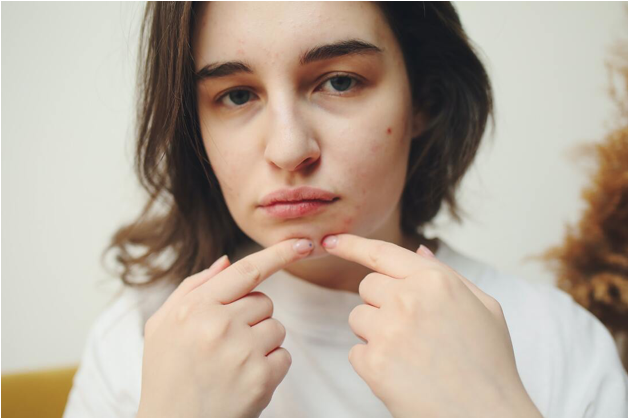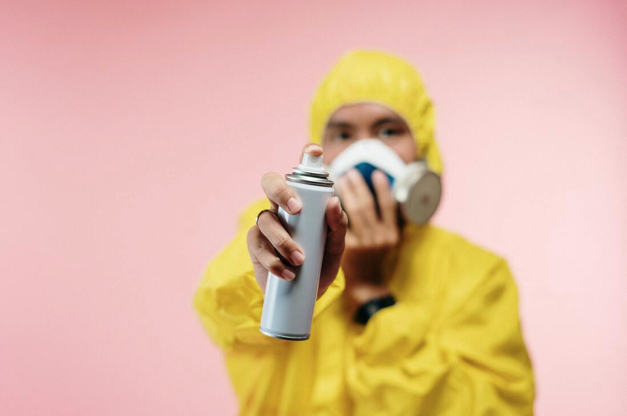The Down-low on Makeup: Are Cosmetics Truly Cause for Concern When it Comes to Skin Health?22/7/2021 In the last few 100 years, makeup has come a long way from poisonous powders and pigments to something that has become a much-loved staple in many of our morning routines. However, makeup still holds a bit of a bad reputation when it comes to skin health. Gospel truths such as ‘makeup causes acne and clogs pores’ to ‘it also causes irritation and enhances aging’ have been thrown around by everyone and their mum for years, but is there any truth to these statements? And is going makeup free really the secret to perfect skin? Well the answer is unfortunately, not so black and white. "There are no studies that show makeup application has any downside for most women," cites board-certified dermatologist Fayne L. Frey of Dermatology & Dermatological Surgery in New York. However, whether makeup causes skin problems really depends on a lot of factors such as your skin type and what conditions you may be prone too, your current skin health, the type of makeup, ingredients and formulations ect. Joel Schlessinger, Nebraska-based, board-certified dermatologist, has a similar perspective saying, "As long as you choose high-quality makeup that is designed for your skin type, there is nothing wrong with applying makeup every day." In fact, it could even improve your skin's health and become a key part of your skincare routine. He recommends using a mineral makeup because it stays on the skin's surface, doesn’t clog the skin and creates a natural barrier against environmental factors such as free radical aging and sun protection. Certain foundations such as Fleur de Mer’s foundation cream also contains high levels of spf 50 and when combined with your regular daily sunscreen, can offer extra protection against premature aging. If you are prone to acne and congestion however, then there is a chance your makeup could contribute to some further breakouts. Acne cosmetica, is a form of acne which can be triggered by the use of certain cosmetic products containing ingredients known as comedogenics. These ingredients contribute to comedone or pimple formation, and can increase blockages within the skin. It’s a common saying or misconception that makeup blocks skin pores or doesn’t allow skin to breath, but really this saying is incorrect. Skin doesn’t ‘breathe’ and it’s not the makeup and blocks the pore but rather the dead skin cells that become trapped when a barrier is placed over the skin and not removed correctly. That being said, if you are a pimple popper, popping a pimple and applying makeup straight over the top can bacteria into an open wound on the skin and cause more infection so this practice should be avoided as much as possible. Common comedogenic ingredients include mineral oil, coconut oil, bee’s wax, Cetyl Acetate and more. For a comprehensive list of more ingredients visit, https://acneclinicnyc.com/pore-clogging-ingredients/. If you are acne prone, staying away from these ingredients can help to minimise the risk of increasing breakouts on the skin, but more so than the makeup itself, removing it properly is the key to ensure non-clogged skin. Ariel Enriquez, Skin Trainer at Massage Retreat & Spa in Minneapolis advises clients to "always double-cleanse your skin when wearing makeup." She adds, "Never sleep in makeup as it doesn't allow your skin to properly shed. Old skin cells, makeup, and environmental pollutants will accumulate on your pillow.” This means your skin is always sitting in a pile of yuck every night which can cause all sorts of skin nasties like breakouts, irritation and redness and can be damaging to the skin as well. Night time while our body is asleep, is when our skin tries to repair and rebalance itself the most so giving it an unhealthy environment to do this is a recipe for complexion disaster. Double cleansing can easily be done by using some kind of micellar water or oil-based cleanser first to remove your makeup, before going in with your regular cleanser. On the other end of the spectrum, makeup can also cause irritation such as contact dermatitis if you’re prone to allergies or have skin sensitivities. Irritation accounts for most of the adverse reactions to beauty products and can affect anyone but specifically those with a compromised skin barrier or existing inflammatory condition such as rosacea, dermatitis or eczema. Unfortunately, it can be difficult to avoid makeup products that can cause a reaction as again it depends on your own skin condition and immune response, which is entirely individual and is what determines if a reaction will occur in the first place. What may cause irritation for someone, may be fine for someone else and vice versa, and irritations or sensitivities to certain products may also build up over time as the skin changes. Skin is complex and is constantly changing and modifying over time, so if you are experiencing a sudden adverse reaction it may just be a case of over sensitising your skin and stepping back for a moment with your products, before slowly progressing again to the level you were before. If something like this does happen to you, its best to visit your skin or health professional so we can determine what might be going on and the best plan of action to help you get back to optimal skin health. Nevertheless, fragrances, colours, harsh alcohols and preservatives are all common ingredients that are known to commonly cause irritation in a large amount of people and so should be avoided where possible. Some other easy tips and tricks to keep in mind to maximise skin health where makeup is concerned are as follows:
- Skin x
0 Comments
Leave a Reply. |
Archives
June 2023
Categories |
SKIN GERALDTON |
QUICK LINKS |





 RSS Feed
RSS Feed

